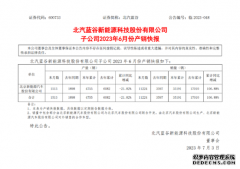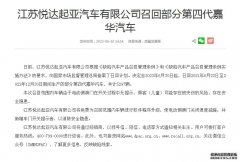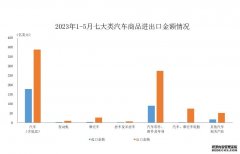近日本公司征集精品推荐::1966年全国通用粮票一组
近日本公司征集精品推荐:1966年全国通用粮票一组
【藏品名称】:粮票
[collection name]: Food coupon
【类别】:杂项
Class: miscellaneous
粮票是20世纪50年代至80年代中国在特定经济时期发放的一种购粮凭证。 中国最早实行的票证种类是粮票、食用油票、布票等。粮票作为一种实际应用的有价证券,在中国使用达40多年,随着社会的发展,它已退出了历史舞台,成为收藏者的新宠。
Grain ticket is a kind of certificate issued by China in the special economic period from 1950s to 1980s. The earliest types of tickets implemented in China were grain tickets, cooking oil tickets, cloth tickets, etc. As a kind of practical application of securities, food stamps have been used in China for more than 40 years. With the development of society, they have withdrawn from the historical stage and become the new favorite of collectors.
粮票是特殊经济条件下的历史产物,票面题材广泛,印制精细,具有时间性、地域性的特点。经年累月的岁月侵蚀,更使这种具有不可复制性的票证文物日渐稀少,珍品迭出,长期为海内外收藏爱好者所瞩目。
Food stamps are the historical products under special economic conditions. They have a wide range of topics and are printed precisely, with the characteristics of time and region. After years of years of erosion, this kind of irreproducible ticket cultural relics are increasingly rare, and the treasures are emerging one after another, attracting the attention of collectors at home and abroad for a long time.
另外,有些发行于解放战争时期的公粮票,是解放战争时期革命军队在人民群众支持下浴血奋战的历史见证,具有重要的纪念意义和收藏价值。
In addition, some of the public grain tickets issued in the period of the liberation war are the historical witness of the revolutionary army's bloody struggle under the support of the people during the period of the liberation war, which have important significance of commemoration and collection.
粮票自身是没有价值的票证,但凭粮票可买到国家牌价粮食,实际上粮票成了一种有价证券。粮票的面值等于国家牌价粮价与市场价之差。1993年后中国已取消使用粮票,粮票很快进入了收藏品的行列,全国集“粮”爱好者也在不断扩大。近两年在香港、澳门特区和欧美一些国家高价购买竞相收藏中国粮票中的珍品。随着时间推移,集粮热的升温,粮票收藏品市场也必将上扬。投资收藏粮票前景十分可观。粮票曾作为中国的第二“货币”,在中国历时40年,它反映了中国各个历史时期的社会经济状况,有较为重要的研究价值和收藏价值。此组粮票共4张,分别为半市斤、壹市斤、叁市斤、伍市斤全国通用粮票,此组粮票保存完好,极具收藏价值。
Food stamps have no value in themselves, but they can be used to buy grain at the national price. In fact, food stamps have become a kind of valuable securities. The face value of the food ticket is equal to the difference between the national price and the market price. Since 1993, the use of food stamps has been cancelled in China. Food stamps have quickly entered the ranks of collectibles, and the fans of "grain" collection in China are also expanding. In the past two years, we have been in Hong Kong, Macao SAR and some countries in Europe and the United States to pay high prices for the treasures in the collection of Chinese food stamps. As time goes on, with the increase of grain collecting heat, the market of grain ticket collection will also rise. The prospect of investment in collecting food stamps is very good. As the second "currency" of China, food stamps have been in China for 40 years. It reflects the social and economic conditions of China in various historical periods, and has relatively important research value and collection value. There are 4 food stamps in this group, which are half Jin, one jin, three Jin and five Jin national general food stamps. This group of food stamps is well preserved and has great collection value.


在1978年的第十一届三中全会后,国家渐渐控制粮票的发行量,统一限量供应粮食和食用油票,在1984年,深圳市作为第一个取消一切票证,粮食、猪肉、棉布、食油等商品敞开供应,价格放开。深圳人率先过上了不用粮本、粮票的日子。粮价放开后,激活了其他商品的流通,促进了农民生产积极性,粮食产量显著增长。1993 年,粮油实现敞开供应,粮票已无用武之地,被正式宣告停止使用,长达近40 年的“票证经济”就此落幕,老百姓再也不用为找不到粮票发愁了。随着社会的发展,它虽退出了历史舞台,但却成为收藏者的新宠。在现今收藏市场上,粮票作为一个上世纪五十年代到八十年代的时代产物,为中国当时食物分配作为极大贡献,缓解了当时中国食物紧缺以及抑制市场经济通货膨胀。因此其本身具备着极重的历史意义性,在收藏品市场上,一跃成为了众人所爱。但由于其在上世纪80年代左右便退出历史舞台,以至于目前存世量不多,导致其价值一直不停上涨,变成了可遇不可求的存在。
After the Third Plenary Session of the Eleventh Central Committee in 1978, the state gradually controlled the issuance of food stamps and uniformly limited the supply of food and edible oil stamps. In 1984, Shenzhen, as the first city to cancel all tickets, opened up the supply of food, pork, cotton cloth, edible oil and other commodities and liberalized the price. Shenzhen people took the lead in living a life without food and food stamps. After the opening of grain price, the circulation of other commodities was activated, farmers' enthusiasm for production was promoted, and grain output increased significantly. In 1993, the grain and oil supply was opened to the public, and the food tickets had no use. It was officially declared to stop using. The nearly 40 year "ticket economy" ended, and people no longer had to worry about finding food tickets. With the development of society, although it has withdrawn from the historical stage, it has become a new favorite of collectors. In today's collection market, food stamps, as a product of the 1950s to 1980s, made a great contribution to the food distribution in China at that time, alleviated the food shortage in China at that time and restrained the inflation of market economy. Therefore, it is of great historical significance. In the collection market, it has become the favorite of all. But because of its withdrawal from the stage of history in the 1980s, its value has been rising continuously, and it has become an existence that can be met but not be sought.
丰富艺术生活,传递艺术价值!如果您对此钱币感兴趣,欢迎联系轩宇(广州)艺术传媒有限公司!
Enrich art life and transfer art value! If you are interested in this coin, please contact Xuanyu (Guangzhou) art media Co., Ltd!
分享是一种美德,分享是一种快乐,学会分享,快乐他人!
Sharing is a virtue, sharing is a joy, learn to share, happy others!
- 新闻
- 房产
- 汽车
- 娱乐
- 体育






















